Some 95 per cent of the value of plastics is lost to the economy each year because Europe is not reusing or recycling enough, an international audience heard today in Japan.
Today at the World Circular Economy Forum in Japan, a global audience of experts, business leaders and policy makers heard that in the European Union (EU), 105 billion euros of value is lost each year due to a lack of plastics reuse and recycling – some 95 per cent of the value of plastics in the EU.
Daniel Calleja, director general of the European Commission’s DG Environment, told a packed session in Yokohama that plastic reuse and recycling rates in the bloc remain stubbornly low compared with other materials, but that the EU institutions continue to tackle the issue head on.
“The plastics sector in the EU is a very strategic sector,” Mr Calleja told the forum’s session on Circular Economy for Plastics.
“The sector employs 1.5 million people and has a turnover of 340 billion euros, but plastic is also at the origin of serious environmental issues,” he said, adding that in the EU and beyond, decision makers are exploring ways to make the plastic sector circular, save resources and “reduce plastic leakage into the environment”.
According to the European Commission, 25.8 million tonnes of plastic waste is generated annually in the EU, with less than 30 per cent collected adequately.
For its part, the European Commission has recently introduced a raft of proposals and concrete legislation in recent months to address the plastics challenge within and outwith the bloc.
In January 2018, the EU adopted a Plastics Strategy to ensure that by 2030, all plastic packaging put into the market is reusable or recyclable. Plastic packaging comprises the largest type of plastic waste in the EU.
Mr Calleja also told the forum that single-use plastics would be restricted where there are no alternatives, and that a “restriction dossier” was being prepared for micro-plastics that are intentionally added in products. “We are taking regulatory action at the European level,” said Mr Calleja, “but also at the level of the G7, G20 and within the United Nations to combat plastic pollution. Only international efforts will be able to deliver.”
The environmental policy chief added that innovation would be a key tool in delivering circularity for the European plastics sector – with heavy investment to follow.
“In the coming years we are spending more than 350 million euros in order to promote innovative solutions linked to plastics. We’ll be looking at design and circularity. We do not want to demonise plastics; what we want is to make plastics circular, to make sure we can recycle and reuse them.”
Mr Calleja’s comments echoed those of other international participants in today’s session, all keen to emphasise the link of smart product designs to improving circularity in the sector.
“In Germany we have good collection and sorting systems but this is not enough,” said German environment ministry speaker Regina Dube. “We should also improve packaging design to get to a circular economy.”
In the Europe, the EU’s innovation drive is notably being supported by the bloc’s research and innovation agenda, and the Horizon 2020 programme.
Multi-million euro initiatives including the CIRC-PACK and PlastiCircle projects are being driven forward to improve the circularity of plastic packaging, promote innovations in collection and sorting and boost the production of added value products from recycled plastic packaging waste.
With global plastics production set to double in the next 20 years, the need for regulation, partnerships with the private sector, and strategic investment in circular economy solutions is becoming ever more urgent.
Today's session at the World Circular Economy Forum was co-organised by the Japanese Ministry for the Environment, the Finnish innovation fund Sitra, and the European Commission.
